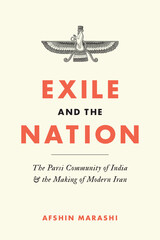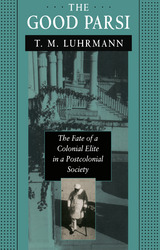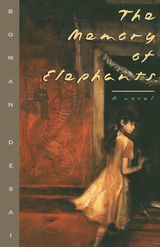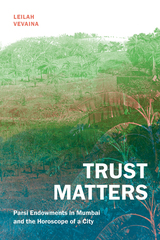
Honorable Mention, Hamid Naficy Iranian Studies Book Award from the Association of Iranian Studies
In the aftermath of the seventh-century Islamic conquest of Iran, Zoroastrians departed for India. Known as the Parsis, they slowly lost contact with their ancestral land until the nineteenth century, when steam-powered sea travel, the increased circulation of Zoroastrian-themed books, and the philanthropic efforts of Parsi benefactors sparked a new era of interaction between the two groups.Tracing the cultural and intellectual exchange between Iranian nationalists and the Parsi community during the late nineteenth and early twentieth centuries, Exile and the Nation shows how this interchange led to the collective reimagining of Parsi and Iranian national identity—and the influence of antiquity on modern Iranian nationalism, which previously rested solely on European forms of thought. Iranian nationalism, Afshin Marashi argues, was also the byproduct of the complex history resulting from the demise of the early modern Persianate cultural system, as well as one of the many cultural heterodoxies produced within the Indian Ocean world. Crossing the boundaries of numerous fields of study, this book reframes Iranian nationalism within the context of the connected, transnational, and global history of the modern era.

During the Raj, one group stands out as having prospered and thrived because of British rule: the Parsis. Driven out of Persia into India a thousand years ago, the Zoroastrian people adopted the manners, dress, and aspirations of their British colonizers, and their Anglophilic activities ranged from cricket to Oxford to tea. The British were fulsome in their praise of the Parsis and rewarded them with high-level financial, mercantile, and bureaucratic posts. The Parsis dominated Bombay for more than a century. But Indian independence ushered in their decline. Tanya Luhrmann vividly portrays a crisis of confidence, of self-criticism, and perpetual agonizing.
This story highlights the dilemmas and paradoxes of all who danced the colonial tango. Luhrmann's analysis brings startling insights into a whole range of communal and individual identity crises and what could be called "identity politics" of this century. In a candid last chapter the author confronts another elite in crisis: an anthropology in flux, uncertain of its own authority and its relation to the colonizers.


READERS
Browse our collection.
PUBLISHERS
See BiblioVault's publisher services.
STUDENT SERVICES
Files for college accessibility offices.
UChicago Accessibility Resources
home | accessibility | search | about | contact us
BiblioVault ® 2001 - 2024
The University of Chicago Press









